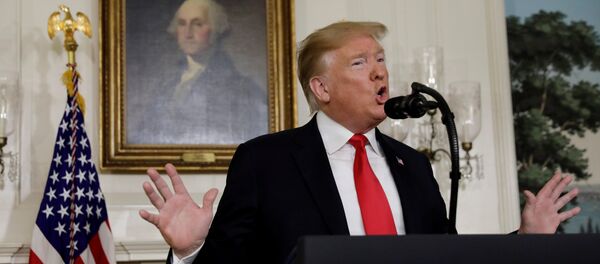"[T]he administration should pursue serious diplomacy to save it, rather than rushing ahead with a plan to terminate the agreement, undermining international institutions and alienating our allies," House of Representatives Foreign Relations Committee Chairman Eliot Engel said.
By pulling out of the treaty, President Donald Trump is creating an opening for a dangerous arms race, Engel warned.
"Yet again, President Trump is alienating America’s allies, ignoring the advice of career security experts, and handing a strategic gift to Vladimir Putin," Engel said.
READ MORE: Moscow to Continue Countering 'Destructive Steps in Arms Control' — Russian FM
Senator Dianne Feinstein agreed with Engel that the Trump administration should use diplomatic tools to respond to and engage Russia on treaty issues rather than pull out of the agreement entirely.
"There’s no question that Russia is violating the treaty and that we need to address those violations. But we should do so by taking coordinated diplomatic action with our NATO allies," Feinstein said in a statement.
Earlier on Friday, Secretary of State Mike Pompeo announced that the United States would suspend its obligations under the INF treaty on Saturday and would begin a six-month withdrawal process unless Russia "returned to compliance".
Washington has repeatedly claimed that a Russian missile test in 2014 violated the agreement while Moscow has complained that US launchers on defense systems in Europe are capable of firing cruise missiles at banned ranges.
The INF Treaty was signed by the Soviet Union and the US in 1987, and provides for the elimination of all nuclear-armed ground-launched ballistic and cruise missiles, along with their launchers, that operate at ranges of between 500-1,000 kilometres (short-range) and 1,000-5,500 kilometres (intermediate-range).




